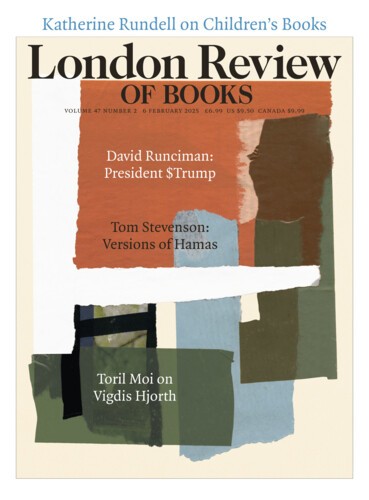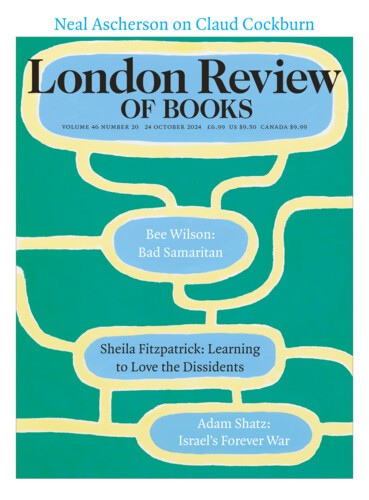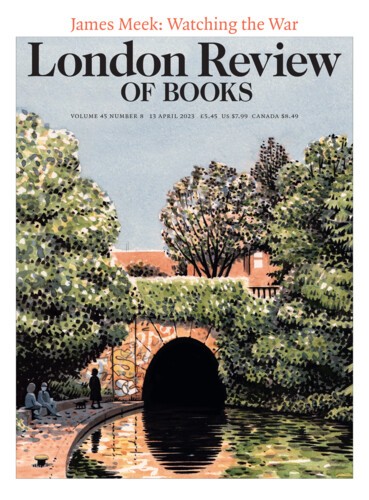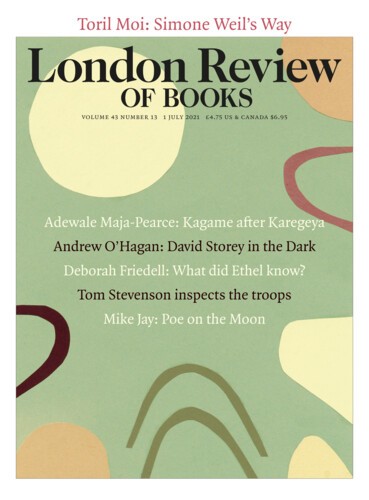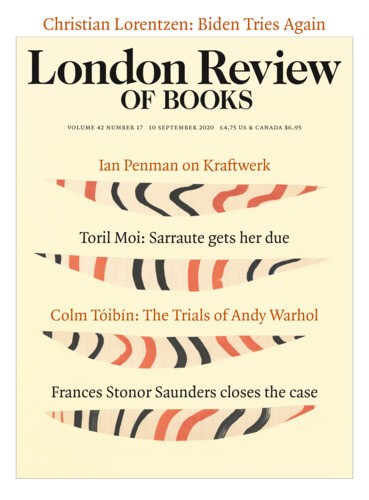I must divorce! On Vigdis Hjorth
Toril Moi, 6 February 2025
Norwegians make a fuss about first books. The newspapers publish round-ups of the year’s literary debutants, who are invited to writers’ workshops organised specially for them. In 1983, two young authors met at one such workshop in Sweden. The first was a 23-year-old man whose Raudt, svart (‘Red, Black’) was being promoted as a ‘bleak and intense first...
